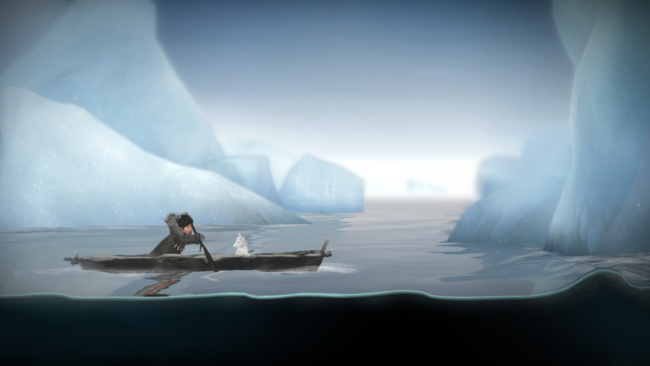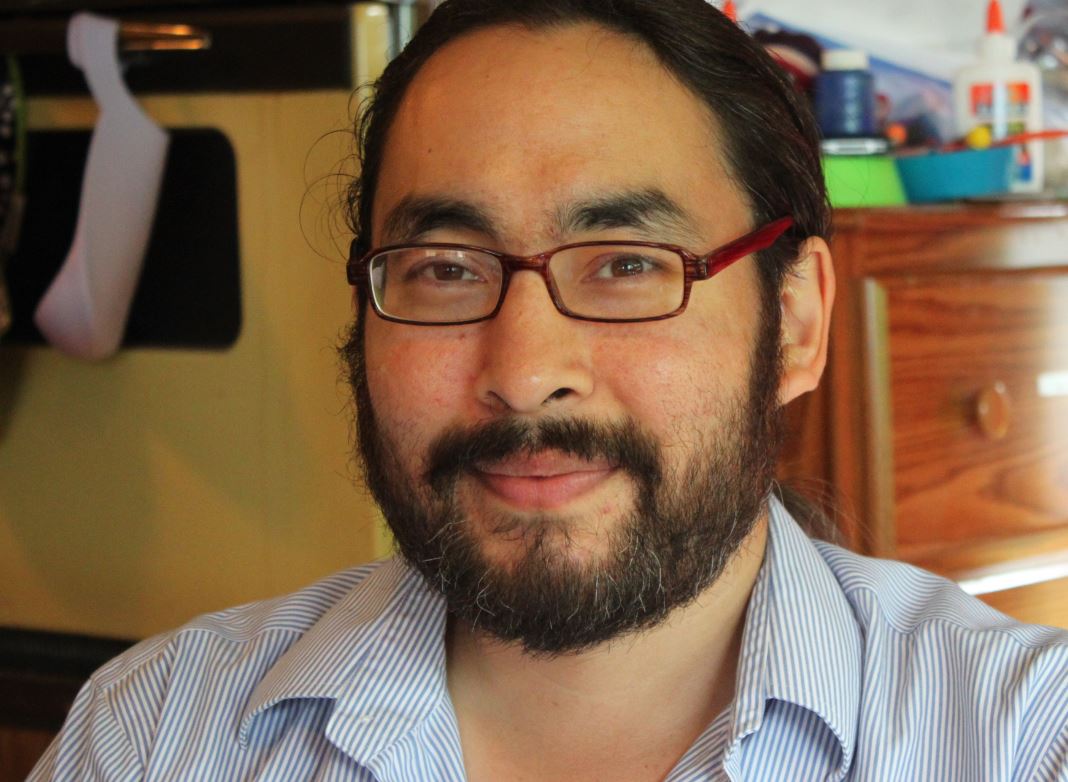
With “Never Alone,” Cook Inlet Tribal Council and game developers combined indigenous storytelling with video gaming in a way that appealed to mass markets.
Its success has led to the follow up “Never Alone: Foxtales,” released on July 28. Juneau writer Ishmael Hope relied on his uncles, Alaska Native elders from Kotzebue, to write the game’s narrative.
Willie Goodwin Jr. narrates the videogame Foxtales. In Iñupiaq, he tells the story of two friends who emerge from their sod homes after a long winter.
“At springtime,” Goodwin says, “everything comes alive.”
Goodwin is an elder from Kotzebue. He’s also the uncle of Ishmael Hope, the game’s writer.
Hope says the two friends, Nuna and Fox, start chasing a little mouse.
“And then suddenly, in the middle of their chase, they’re stranded out in the ocean. They find themselves in an old umiak, a boat. They’re just out, and then they have to navigate their way all the way through,” Hope says.
In Nuna and Fox’s journey, “They get a little too exuberant, like young people will,” Hope says. “They’ll make little mistakes, but then they have to learn a lesson about how to respect all things, the values of being Inuit, Iñupiaq. It’s something that they had to learn.”

Foxtales is based on a story told by Hope’s late grandfather, Willie Panik Goodwin. It’s a story about fighting a giant mouse. Goodwin told the story “The Two Coastal Brothers” during an archaeological trip with a team of scholars, including Wanni Anderson who transcribed it in a short story collection, “Dall Sheep Dinner Guest.”
Hope used a lot of his grandfather’s direct words when writing the game’s script. He also collaborated extensively with his uncles who live in Kotzebue, where Foxtales begins.
The game, like its predecessor “Never Alone,” is narrated in Iñupiaq with English subtitles.
“Even if people are absorbed in the game, there’s something really special about the elder’s voice, them speaking in the language. So even if you’re not following everything, you’re getting a sense of that world and that spirit,” Hope says.
Hope says it’s that spirit that gives identity. Hope is Iñupiaq and Tlingit. He says his uncles Elmer Goodwin, Willie Goodwin Jr. and John Goodwin taught him a lot about Iñupiaq culture. Hope says working with them was key to making Foxtales.
“They know how to hunt, they know how to fish, they know how to be in the land. They have so many stories of survival, of reading the landscape, observing the landscape, sensing the spirits and the life of everything around us. They have that knowledge and they were able to impart that a little bit with us,” Hope says.
Foxtales is a celebration of Iñupiaq culture, something Hope thinks young people playing the game need.
“It’s one instance where they get a positive image of themselves reflected back on them. And when you’re in pop culture and you have almost no images or it’s all horrible stereotype, it’s really nice to kind of break through just a little bit,” Hope says.
Videogames have been seen as separating the young generation from the old, but Hope wants Foxtales to do the opposite.
“For young people everywhere, it allows them to create the bridge to their mom and their dad and their uncles, their aunties and their grandparents who may tell them, ‘Oh you know I know a story just like that, so let’s sit down and let me tell it to you,'” Hope says.
Hope doesn’t know if Nuna and Fox will go on any more adventures, but he says with the title Foxtales, there’s a possibility for more.